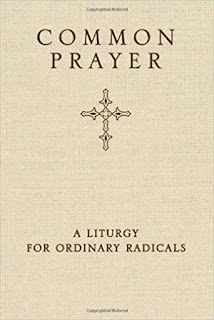The Daily Lectionary
FRIDAY, July 10, 2020
Psalm 119:105-112; Deuteronomy 32:1-10; Romans 15:14-21
(Revised Common Lectionary Year A)
Your word is a lamp to my feet
105 Your word is a lamp for my feet,
a light on my path.
106 I have taken an oath and confirmed it,
that I will follow your righteous laws.
107 I have suffered much;
preserve my life, Lord, according to your word.
108 Accept, Lord, the willing praise of my mouth,
and teach me your laws.
109 Though I constantly take my life in my hands,
I will not forget your law.
110 The wicked have set a snare for me,
but I have not strayed from your precepts.
111 Your statutes are my heritage forever;
they are the joy of my heart.
112 My heart is set on keeping your decrees
to the very end.
Jacob personification of Israel
1 Listen, you heavens, and I will speak;
hear, you earth, the words of my mouth.
2 Let my teaching fall like rain
and my words descend like dew,
like showers on new grass,
like abundant rain on tender plants.
3 I will proclaim the name of the Lord.
Oh, praise the greatness of our God!
4 He is the Rock, his works are perfect,
and all his ways are just.
A faithful God who does no wrong,
upright and just is he.
5 They are corrupt and not his children;
to their shame they are a warped and crooked generation.
6 Is this the way you repay the Lord,
you foolish and unwise people?
Is he not your Father, your Creator,
who made you and formed you?
7 Remember the days of old;
consider the generations long past.
Ask your father and he will tell you,
your elders, and they will explain to you.
8 When the Most High gave the nations their inheritance,
when he divided all mankind,
he set up boundaries for the peoples
according to the number of the sons of Israel.
9 For the Lord’s portion is his people,
Jacob his allotted inheritance.
10 In a desert land he found him,
in a barren and howling waste.
He shielded him and cared for him;
he guarded him as the apple of his eye.
Sanctified by the Holy Spirit
15:14 I myself am convinced, my brothers and sisters, that you yourselves are full of goodness, filled with knowledge and competent to instruct one another. 15 Yet I have written you quite boldly on some points to remind you of them again, because of the grace God gave me 16 to be a minister of Christ Jesus to the Gentiles. He gave me the priestly duty of proclaiming the gospel of God, so that the Gentiles might become an offering acceptable to God, sanctified by the Holy Spirit.
17 Therefore I glory in Christ Jesus in my service to God. 18 I will not venture to speak of anything except what Christ has accomplished through me in leading the Gentiles to obey God by what I have said and done— 19 by the power of signs and wonders, through the power of the Spirit of God. So from Jerusalem all the way around to Illyricum, I have fully proclaimed the gospel of Christ. 20 It has always been my ambition to preach the gospel where Christ was not known, so that I would not be building on someone else’s foundation. 21 Rather, as it is written:
“Those who were not told about him will see,
and those who have not heard will understand.”
Optional parts of the readings are set off in [square brackets.]
The Bible texts of the Old Testament, Epistle, and Gospel lessons are from The Holy Bible, New International Version®, NIV® Copyright ©1973, 1978, 1984, 2011 by Biblica, Inc.® Used by permission. All rights reserved worldwide.
The Daily Lectionary is a three-year cyclical lectionary. We are currently in Year A. Beginning with the first Sunday of Advent in 2020, we will be in Year B. The year which ended at Advent 2019 was Year C. These readings complement the Sunday and festival readings: Thursday through Saturday readings help prepare the reader for the Sunday ahead; Monday through Wednesday readings help the reader reflect and digest what they heard in worship. Revised Common Lectionary Daily Readings, copyright © 2005 Consultation on Common Texts. www.commontexts.org
The Daily Lectionary for FRIDAY, July 10, 2020
Psalm 119:105-112; Deuteronomy 32:1-10; Romans 15:14-21









